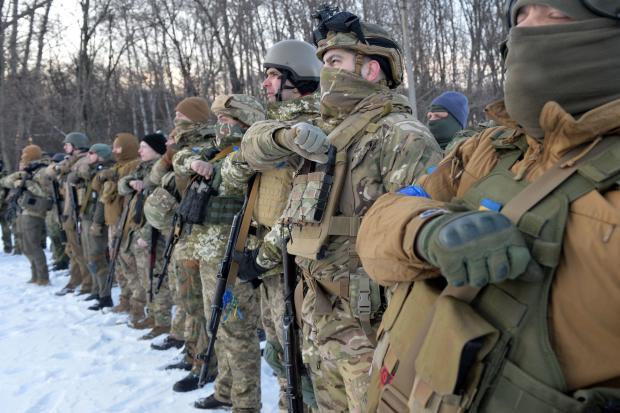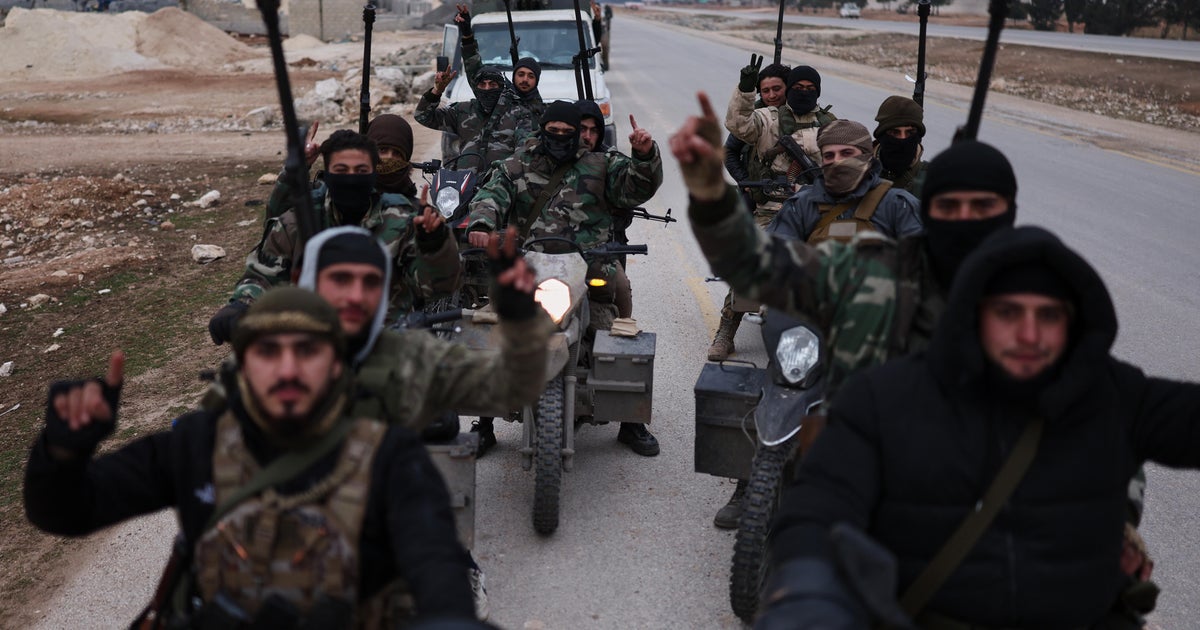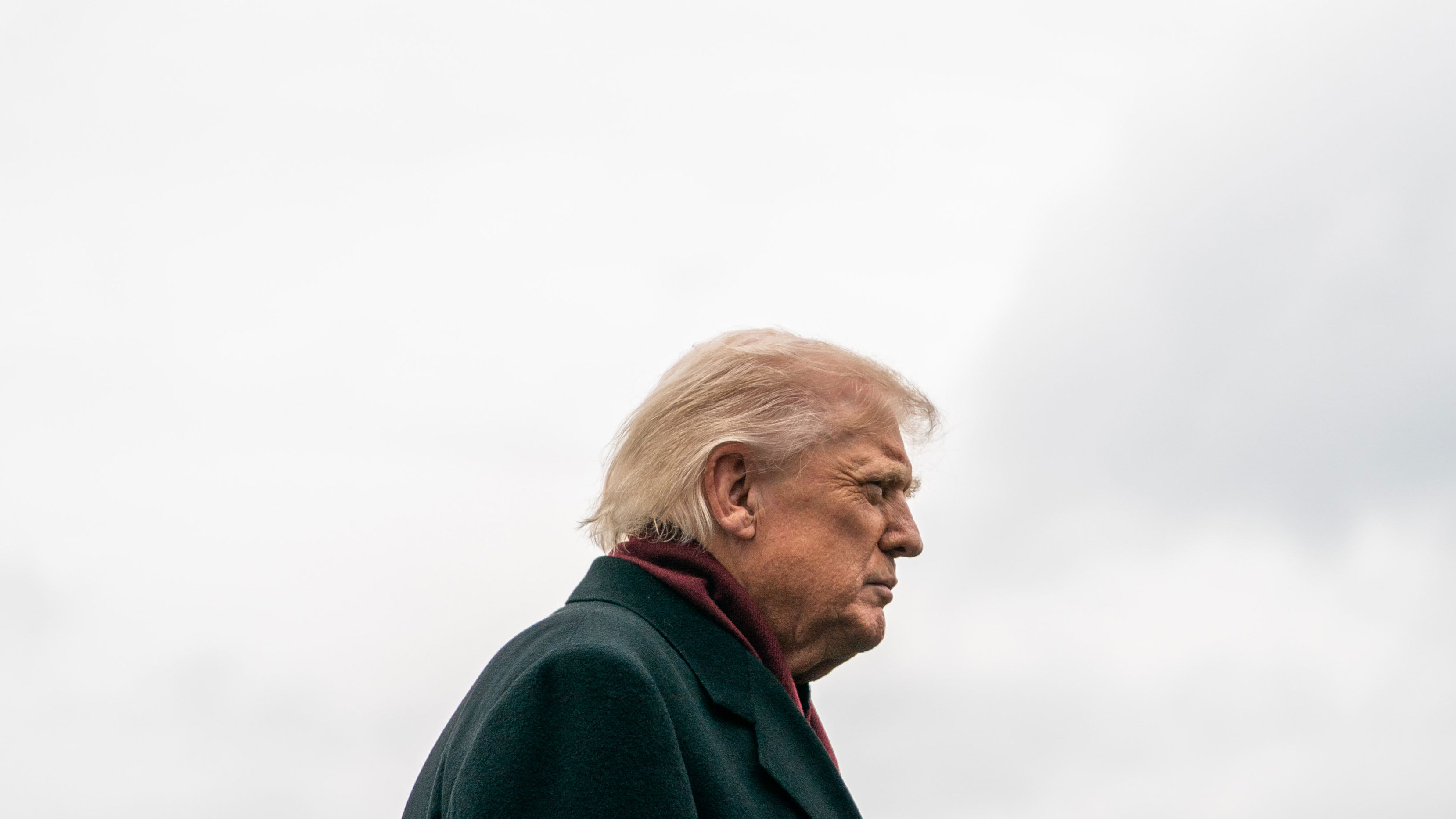Russia's Supreme Court declares Ukrainian steel plant defenders terrorists, paving way for possible longer sentences for captured fighters
Russia's Supreme Court on Tuesday declared Ukraine's Azov Regiment a terrorist organization, a designation that could lead to terror charges against some of the captured fighters who made their last stand inside Mariupol's shattered steel plant.
Scores of Azov fighters are being held by Moscow since their surrender in mid-May. Russian authorities have opened criminal cases against them, accusing them of killing civilians. The addition of terrorism charges could mean even longer prison sentences.
In a statement, the Azov Regiment dismissed the high court ruling, accusing Russia of "looking for new excuses and explanations for its war crimes." It urged the U.S. and other countries to declare Russia a terrorist state.
The Azov soldiers played a key part in the defense of Mariupol, holding out for weeks at the southern port city's steel mill despite punishing attacks from Russian forces. Ukraine's president hailed them and other defenders at the plant as heroes.
Moscow has repeatedly portrayed the Azov Regiment as a Nazi group and accused it of atrocities, though no evidence to back up those claims has been made public. In May, Russia's Prosecutor General's office filed a motion to designate the regiment a terrorist organization.
The regiment, a unit within Ukraine's National Guard, has a checkered history. It grew out of a group called the Azov Battalion, formed in 2014 as one of many volunteer brigades assembled to fight Russia-backed separatists in eastern Ukraine.
The Azov Battalion drew its initial fighters from far-right circles and elicited criticism for some of its tactics. Its current members have rejected accusations of extremism.
The regiment's far-right origins have been seized on by the Kremlin as part of its effort to cast Russia's invasion as a battle against Nazi influence in Ukraine. Russian state media has repeatedly shown what it claimed to be Nazi insignias, literature and tattoos associated with the regiment.
Last week, dozens of Ukrainian POWs, including defenders of the Mariupol plant, were killed in an explosion at a barracks at a penal colony in Olenivka, an eastern town controlled by pro-Russian separatists. Moscow and Kyiv have blamed each other for the blast, with Kyiv saying Russia blew up the barracks to cover up torture against the POWs.
Meanwhile, the first cargo ship to leave Ukraine since Russia invaded more than five months ago was off the coast of Bulgaria on Tuesday as it headed toward Istanbul and its final destination, Lebanon, putting to the test an agreement signed last month by Moscow and Kyiv to unblock Ukraine's agricultural exports and ease the global food crisis.
An estimated 20 million tons of grain have been stuck in Ukraine since the start of war. The U.N.-brokered agreement to release the grain calls for the establishment of safe corridors through the mined waters outside Ukraine's ports.
The Razoni, which set sail from the Black Sea port of Odesa on Monday with more than 26,000 tons of corn, was expected to reach Istanbul early Wednesday for inspection by Russian, Ukrainian, Turkish and U.N. officials. More ships from Ukraine are expected to follow.
At Odesa alone, at least 16 more vessels, all blocked since Russia's invasion on Feb. 24, were waiting their turn, Ukrainian authorities said.
Global food prices have been soaring in a crisis blamed on the war, global supply chain problems and COVID-19. While Ukraine — and Russia — are major world suppliers of wheat, barley, corn and sunflower oil, the agreement may not in itself make much of a dent in world hunger.
Most of the grain stuck in Ukraine is to feed livestock, according to David Laborde, an expert at the International Food Policy Research Institute in Washington. Only 6 million tons is wheat, and just half of that is for human consumption, Laborde said. He said Monday's shipload is actually chicken feed.
"A few ships leaving Ukraine is not going to be a game changer," he said.
The departure of the ship came against a backdrop of continued fighting, especially in southern and eastern Ukraine.






